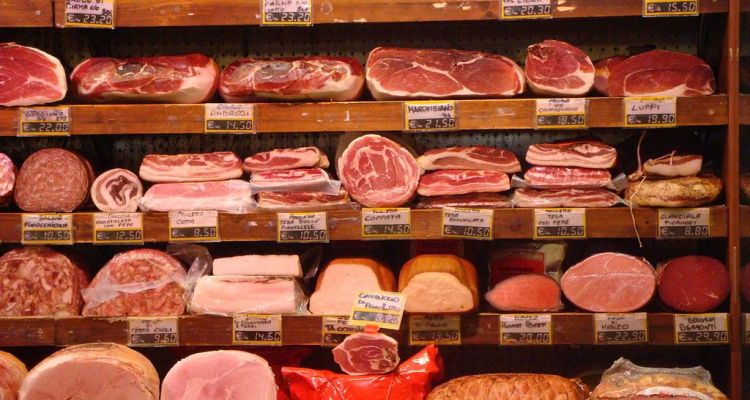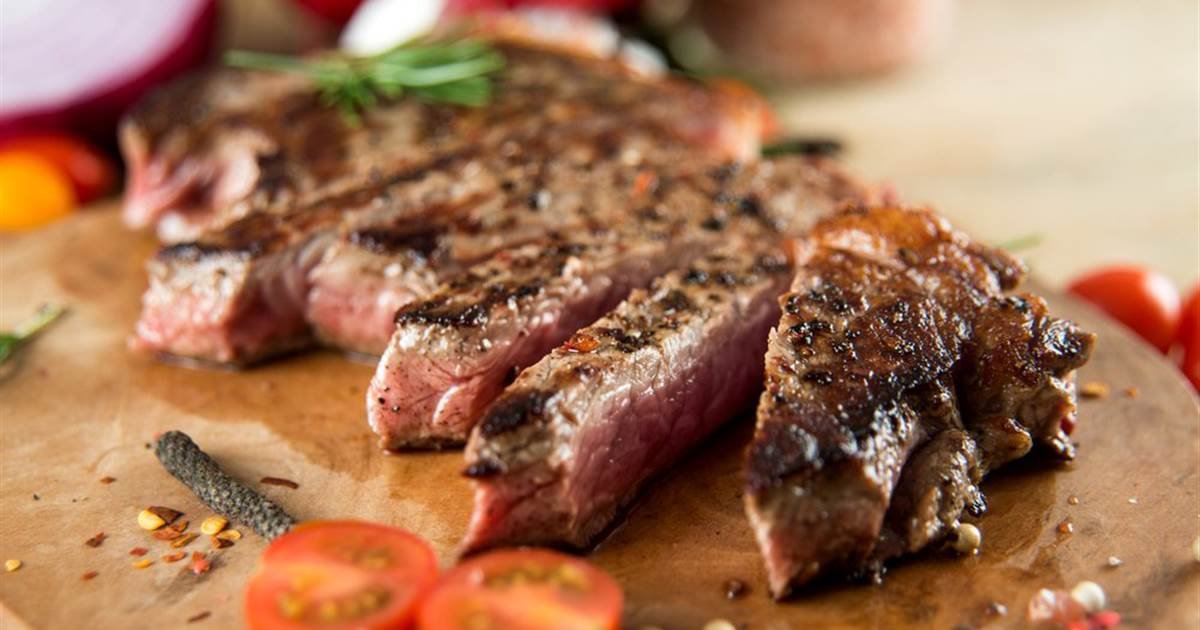A major study has suggested that the risk of bowel cancer increases even if moderate amounts of ham, bacon and red meat are consumed.
In the study, the researchers compared people who consumed 70g of red and processed meat a day, in accordance with the NHS guidelines, to those who didn’t follow them.
The team of scientists at the University of Oxford found that people who eat more meat than what’s recommended have a fifth higher risk of suffering from bowel cancer.
More than 500,000 people were followed by researchers for a period of six years.
Out of them, more than 2,600 participants aged from 40 to 69 developed bowel cancer during the study duration.

The team found that people who eat 76g of red and processed meat a day are more likely to develop bowel cancer than those who eat around 21g per day.
Even though previous studies found a higher risk of bowel cancer to be associated with a diet containing more than 50g of processed meat a day, the new research concluded that just 25g of meat per day – or 33% of our average daily intake – is enough to increase the risk.
To give you an idea, a slice of ham typically weighs 20g (0.7oz), a sausage 66g (2.3oz), and a bacon 31g (1oz).
Professor Tim Key, deputy director at the University of Oxford’s cancer epidemiology unit and the co-author of the study, said: ‘Most previous research looked at people in the 1990s or earlier, and diets have changed significantly since then.

‘So our study gives a more up-to-date insight that is relevant to meat consumption today.’
The World Health Organisation classifies red meat as a probable carcinogenic and processed meat as a definite carcinogenic.
Both the American Institute of Cancer Research and the NHS have recommended the maximum meat consumption to be 70g (or 2.4oz) per day.
The World Cancer Research Fund has also found bowel cancer to be linked to consuming a lot of red meat, such as lamb, pork, and beef.
‘The Government guidelines on red and processed meat are general health advice,’ Dr Julie Sharp, CRUK’s head of health information, said of the study published in the International Journal of Epidemiology.
‘This study is a reminder that the more you can cut down beyond this, the more you can lower your chances of developing bowel cancer.

‘This doesn’t necessarily mean cutting out red and processed meat entirely, but you may want to think about simple ways to reduce how much you have and how often.
‘Although breaking habits we’ve had for a long time can be hard, it’s never too late to make healthy changes to our diet.
‘You could try doing meat-free Mondays, looking for recipes using fresh chicken and fish, or swapping meat for pulses like beans and lentils in your usual meals.’
According to the National Cancer Institute, 40 out of every 100,000 adults suffer from bowel cancer each year in the United States.
Likewise, more than 42,000 people develop the deadly disease in Britain every year, according to Bowel Cancer UK.
Recommended Video!
“Six Early Anal Cancer Warning Signs That People Are Embarrassed To Talk About”


